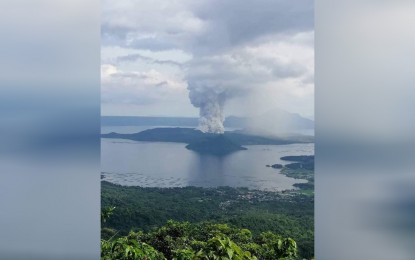
PNA file photo
MANILA -- Officials of the Bangko Sentral ng Pilipinas (BSP) forecast a slight uptick of food inflation in the first quarter of 2020 as a result of the Taal Volcano eruption this month.
“We feel that the increase will probably be temporary with price pressures easing in the coming months,” BSP Governor Benjamin Diokno said in a briefing Thursday.
After peaking at 6.7 percent in September and October 2018 due to supply-side factors, rate of price increases dipped to as low as 0.8 percent in October 2019.
It rose to 1.3 percent and 2.5 percent last November and December, respectively.
Average inflation last year stood at 2.5 percent, within the government’s 2-4 percent target band.
The projected rise of inflation rate this month will come from the affected products like coffee, cacao, and pineapple as well as several other fruits, rice, and fish.
Cavite is known for its coffee and pineapple.
But Diokno said they are keeping their 2.9-percent average inflation forecast for this year and next year to date, adding this will be reviewed during the rate setting meet of the policy-making Monetary Board (MB) on February 6.
He said while price pressures are expected to ease in the coming months, these still need to be assessed properly.
A slowdown in the production of pineapple, cacao, and coffee from Cavite might be countered by other products, he added.
“So in this regard, the BSP will continue to monitor this development as we prepare our forecast for our review of the monetary policy stance,” Diokno said.
He further said while demand for properties near the volcano may decline, other areas may benefit from it.
“So we will have to see how all these dynamics will play out,” he added.
In terms of the impact on growth, Diokno said foregone revenues as a result of the volcano eruption is seen to be about PHP4.3 billion to PHP6.7 billion, less than 1 percent of the 2018 output of the Cavite, Laguna, Batangas, Rizal and Quezon (Calabarzon) Region.
He said the economic impact is limited to the affected areas to date, but this still needs to be assessed.
“While we do not expect this to dampen the country’s over-all growth prospects for 2020, we are mindful that the threat of the more dangerous eruption has not fully dissipated,” he added. (PNA)
